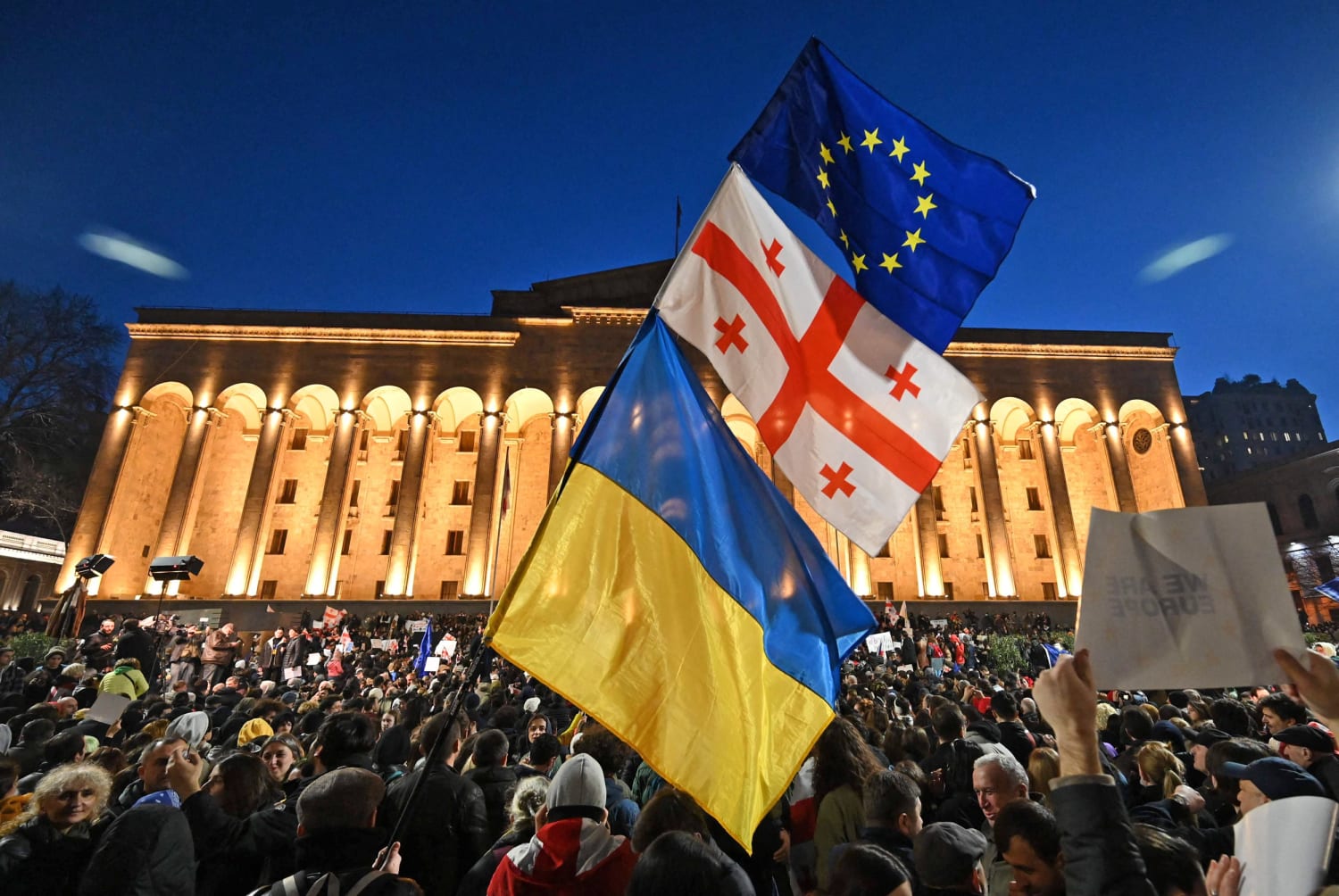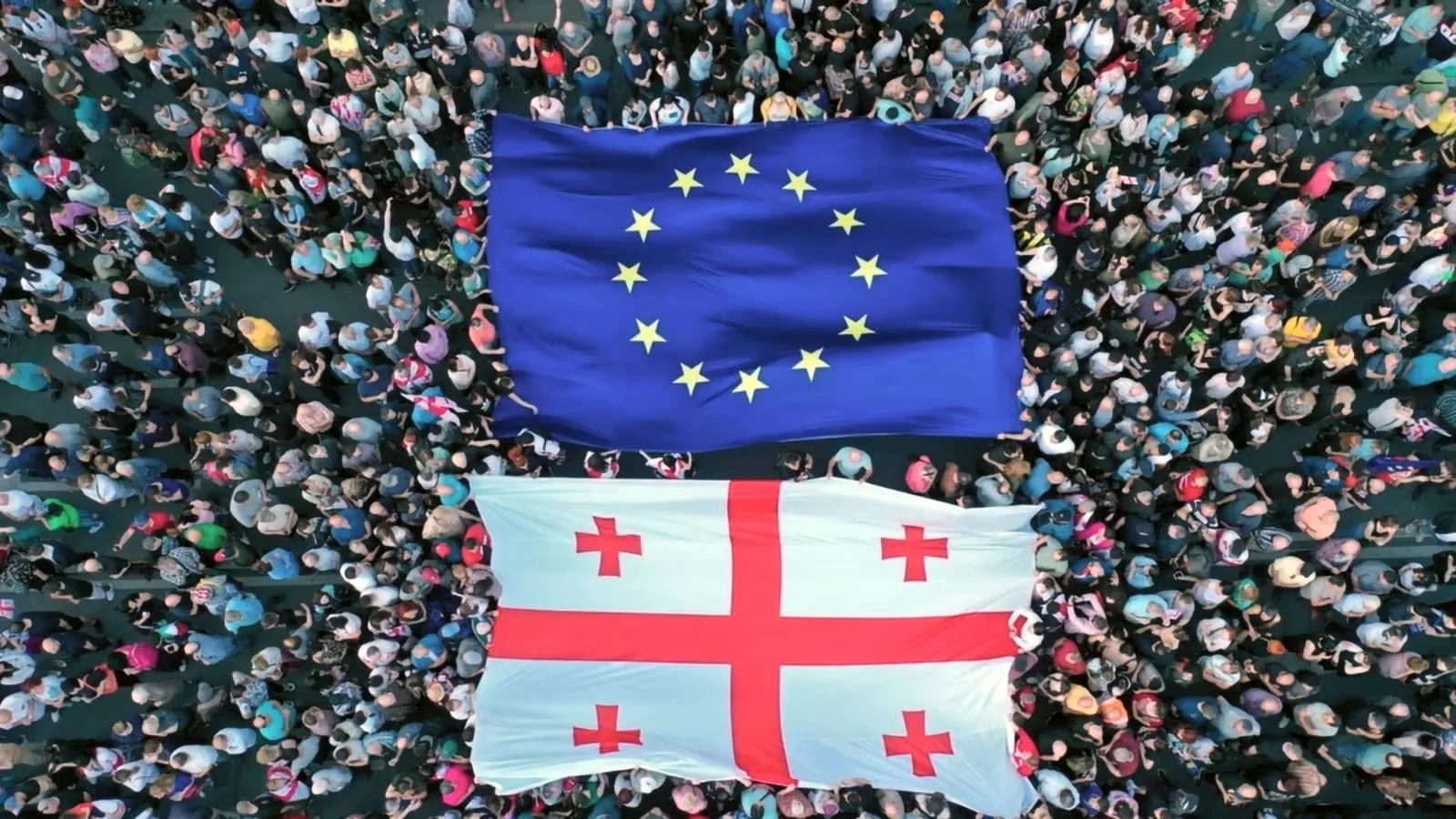Water canons, tear gas cannisters, police baton were all launched on a roaring bastion of Georgian protestors outside Parliament. Meanwhile, lawmakers of the ruling Dream Party tussled with the opposition over the final passage of foreign agent bill.
Police have used a water cannon to disperse protesters against Georgia’s foreign agent around the parliament building.
Tens of riot police were seen marching onto Rustaveli Avenue from Freedom Square with water and sound cannons.
➡️ Live updates: https://t.co/M3Hk08cQcT pic.twitter.com/LeOd1UfO8W
— OC Media (@OCMediaorg) April 30, 2024
On Monday, huge police deployment guarding Georgia’s Parliament building locked in a clash with Georgian residents. Some hundreds and thousands of Georgian protestors, stood hoisting their country flag, amidst a forceful splash of roaring water came hitting in their face. Nearly a month long “peaceful” protest mutated into a violent brawl between riot police of Georgia and the demonstrators as on Tuesday lawmakers were expected to deliver there full and final vote on the foreign agent bill.
A bill which has wrecked havoc in once a peaceful nation nestled in the Caucasus Mountains, is going to pass a bumpy-free ride in Georgia’s parliament where the ruling Dreams party is all prepared to convert the bill into a law. But the opposition will not remain silent. A normal day in Georgia parliament doesn’t go ahead without lawmakers roaring and throwing themselves onto their opponents, but for a bill as intensely received as the foreign agent one, some physical altercation is surely going to break.
The draft bill has been described by the US state department as a “Kremlin” inspired tool to hound independent media and opposition voices in a country that has long roared their desire to confederate with Western spheres of influence but whose government now appears to be leaning towards Moscow.

Beneath roaring protestors is a “wish” they want to come true
For many, the roaring protests that have erupted in Georgia is at the backdrop of the recently curated “foreign agent bill”. But for few who knows Georgian history, knows that these protests reflect a point of explosion which has precipitated after years of protests demanding from government Georgia’s complete accession to the 27-member European Union bloc.
The draft of the bill obliges media organizations and civil societies in Georgia that receive more than 20% of their funding from abroad to register themselves as “organizations serving the interest of foreign powers”. The bill as described by critics is a “Russian fantasy” which is completely at odds with Article 2 of the treaty of the European Union. The said statement jeopardizes the long-standing wish of the three-fourth Georgian population to affiliate their home country with the E.U. Commission.
To make things worse, Brussels has made it crystal-clear that the legislation will be an obstacle to Georgia’s accession to the 27-member state bloc. And with the exemplified brutality with which this legislation is moving, it will only become harder for people of Georgia to convince the ruling party lawmakers to nullify its execution. But there is still hope that spawns from Georgia’s forthcoming election, where power will yet again be transferred in the hands of the voters, even if it happens only for a day.

Can these roaring protests change the faith of ruling Dreams party?
Georgian voters though now roaring, will be ready with their identification proves outside polling booths to cast their most significant votes on October 26, when Georgian election are scheduled to take place. The latest polling suggests that the opposition does not hold any tremendous dominance in the upcoming election. Young voters in Georgia have exclaimed their undesirability for the opposition parties, calling them predominately young.
The Georgian Dream has governed Georgia for 12 years. According to one of the latest polls in March, 20% of the surveyed candidates said they would vote for Dream party, 5% for UNM, 34% would not vote for any party, and 6% would vote for other parties. The largest proportion were undecided. Most observers believe the events of the latest weeks will generate significant implication on Dreams party future, many contemplating its complete eradication.
Georgia is a country in which four out of five voters favor E.U. accession. An important observation, for the current circumstances paint a clear picture of where the incumbent Prime Minister, Irakli Kobakhidze and his administration’s priorities lie. The election therefore will be a consequential moment for Georgia which will decide where the future of this controversial foreign agent law heads to.












